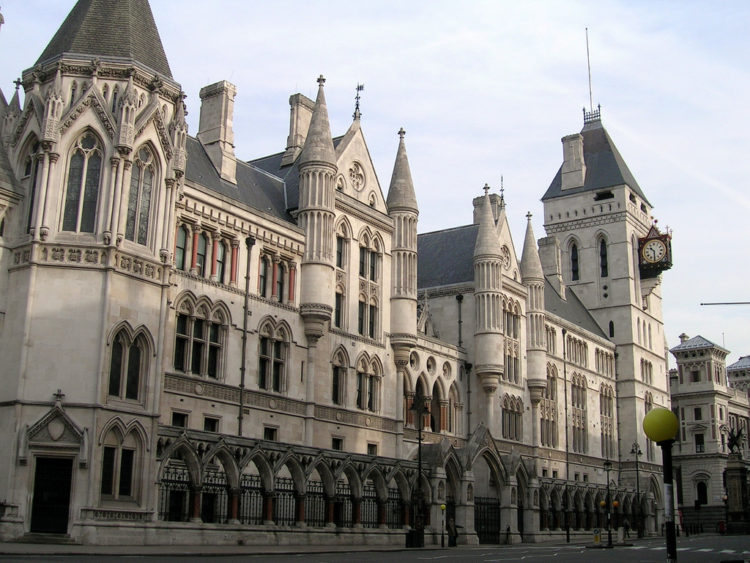By James Simons-
A High Court judge has ruled against clients calling their own solicitor to give evidence,.
The judge warned that every time a client calls their solicitor to give evidence, it could give rise to a potential conflict of interest.The case at hand was that of SRCL Ltd v The National Health Service Commissioning Board, The Honourable Mr Justice Fraser said the calling of Frances Mussellwhite, an associate with national firm Bevan Brittan, was ‘highly unsatisfactory’ and placed her in a difficult position.y SRCL on 30 June 2017. There are three broad areas of contention between the parties in this litigation. SRCL in their legal suit, alleged malpractice and unlawfulness in the manner an auction was conducted. They claimed that the winning bid, and the under-bid ( the next lowest bid), were both abnormally low tenders. SRCL also said that the way that the costs of complying with the Transfer of Undertakings and Protection of Employment Regulations 2006 (“TUPE”) were dealt with by NHSE in the competition for Wave 6, notified to the bidders prior to the auction itself, was unlawful.
CONFLICT OF INTEREST
The High Court judge has made clear that clients should resist calling their own solicitor to give evidence, warning that to do so may give rise to a potential conflict of interest. The judge said it was very unusual for a solicitor, acting for a party in litigation, to give evidence on that party’s behalf as a witness of fact.The Honourable Mr Justice Fraser said the calling of Frances Mussellwhite, an associate with national firm Bevan Brittan, was ‘highly unsatisfactory’ and placed her in a difficult position.
The firm had represented the claimant- a provider of healthcare waste and compliance services- in a dispute about the bidding process for contracted services in Cumbria and the north east. The company claimed the winning bid at auction was abnormally low and the process unlawful.
‘I am confident that Ms Mussellwhite gave her evidence accurately, but there is a line that ought to be preserved in terms of potential conflicts of interest,’ said the judge.
‘Solicitors such as Ms Mussellwhite should not be put in this position. It will only be in extremely rare circumstances that it will be necessary and/or permissible for a party in a procurement case to call its own trusted adviser to give evidence on substantive issues of fact.
The judge added it was necessary to state basic principles about the calling of evidence, notably that no solicitor should be called by its own client to give evidence if that is likely to give rise to a conflict of interest.
Mussellwhite was included in three so-called ‘confidentiality rings’, established by each of the parties involved in the litigation. The judge said there was nothing wrong with her involvement, but was critical of SRCL for accepting that none of its employee could be in the NHS group. He also criticized the fact SRCL called its own solicitor to ‘work around’ restrictions by having her give evidence on confidential matters.
Mussellwhite was included in three so-called ‘confidentiality rings’, established by each of the parties involved in the litigation. The judge said there was nothing wrong with her being involved in each, but he was critical of SRCL for accepting that none of its employee could be in the NHS group and calling its own solicitor to ‘work around’ restrictions by having her give evidence on confidential matters. The situation could have been avoided, he said, if the same evidence had been called from a director or somebody else involved at the time.
The firm had represented the claimant who was a provider of healthcare waste and compliance services in a dispute about the bidding process for contracted services in Cumbria and the north east. The company claimed the winning bid at auction was abnormally low and the process unlawful.
The judge said it was very unusual for a solicitor, acting for a party in litigation, to give evidence on that party’s behalf as a witness of fact.
‘I am confident that Ms Mussellwhite gave her evidence accurately, but there is a line that ought to be preserved in terms of potential conflicts of interest,’ said the judge.
‘Solicitors such as Ms Mussellwhite should not be put in this position. It will only be in extremely rare circumstances that it will be necessary and/or permissible for a party in a procurement case to call its own trusted adviser to give evidence on substantive issues of fact.
The judge added it was necessary to state basic principles about the calling of evidence, notably that no solicitor should be called by its own client to give evidence if that is likely to give rise to a conflict of interest.
Mussellwhite was included in three so-called ‘confidentiality rings’, established by each of the parties involved in the litigation. The judge said there was nothing wrong with her being involved in each, but he was critical of SRCL for accepting that none of its employee could be in the NHS group and calling its own solicitor to ‘work around’ restrictions by having her give evidence on confidential matters. The situation could have been avoided, he said, if the same evidence had been called from a director or somebody else involved at the time.
The ruling appears to have its weaknesses because it would seem impractical to be incapable of including a solicitor as a witness to a case if the solicitor was actually a relevant witness to events on the ground, or had been involved in communication that could be useful to a case. However, the ruling stands until the principle is challenged and overturned in a higher court, if ever.




